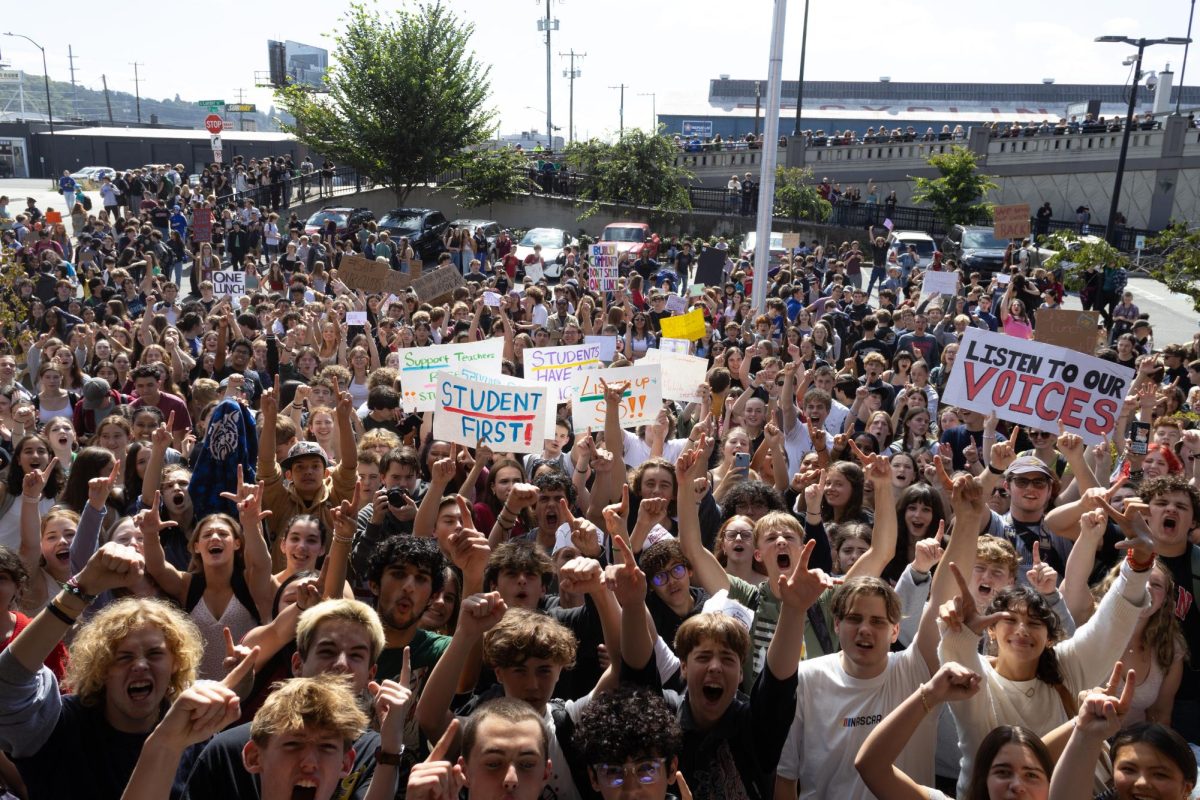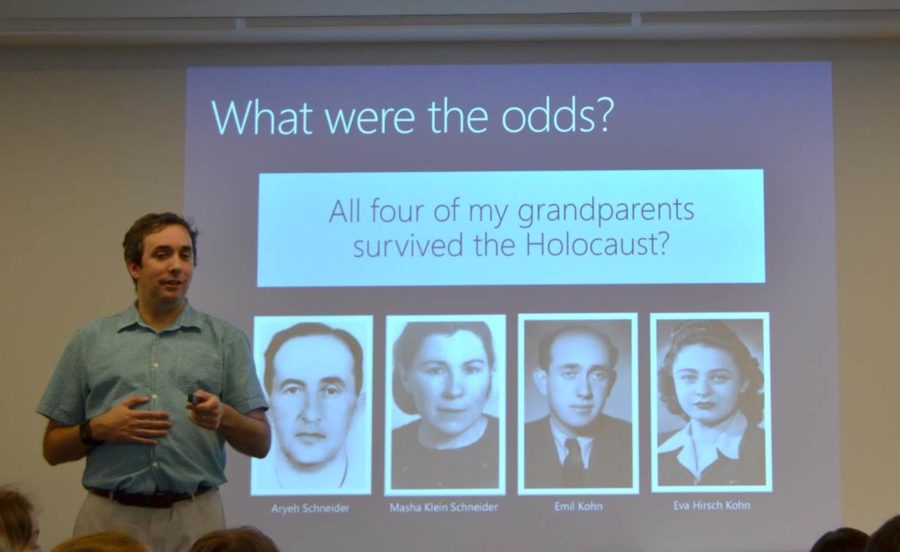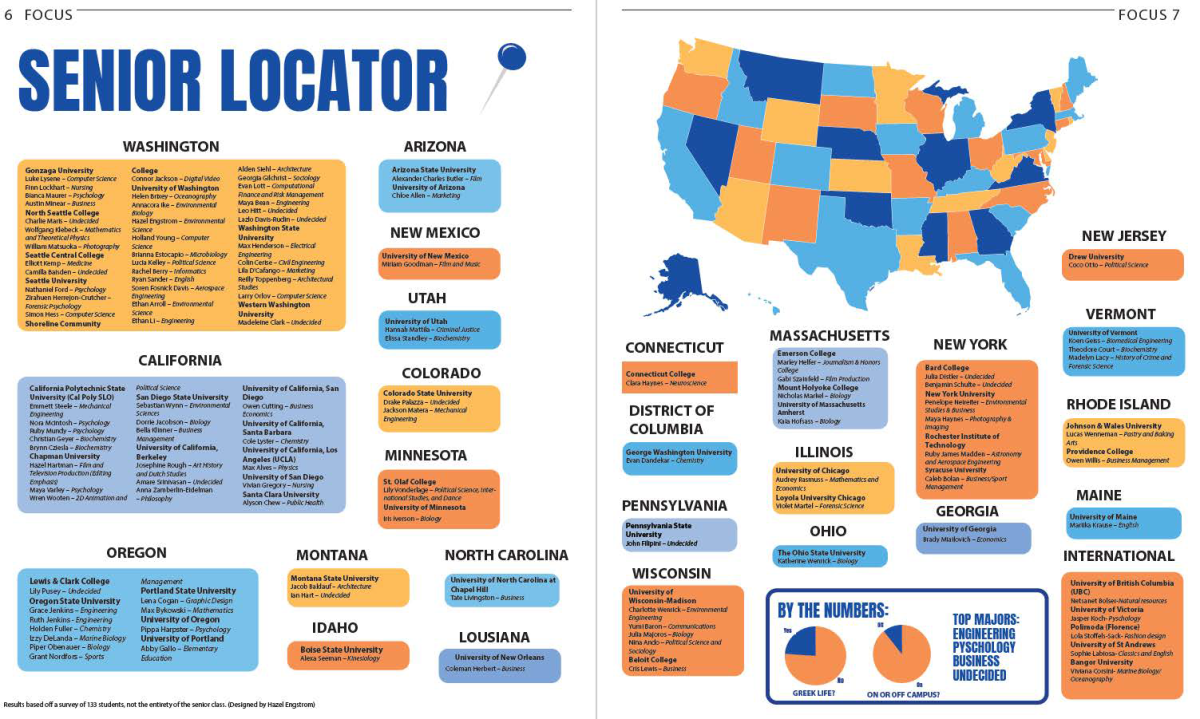Connecting past to present: Holocaust speaker makes an impact
Arik Cohen aims to educate many on the humanity of survivors and prevention of persecution
The grandchild of four Holocaust survivors, Arik Cohen, tells stories of endurance to never forget the tragedy of the Holocaust.
April 21, 2023
The Holocaust ended almost 80 years ago. Survivors of the Holocaust pass down stories of their lives, their escape and the horrors they faced.
The Holocaust was a mass genocide of Jewish people and other persecuted groups in Nazi Germany during World War II. Six million Jewish people were killed, around two thirds of Europe’s Jewish population.
The grandchild of four Holocaust survivors, Arik Cohen, tells these stories of endurance as a way to never forget the tragedy of the Holocaust. He spent time with BHS students in March after being invited by history teacher Robin Dowdy.
Cohen’s maternal grandparents were born in Lithuania and met in the Siauliai ghetto, escaping and hiding in the woods for eight months before Lithuania was liberated by the Soviet Army.
Cohen’s paternal grandparents were both from Romania, meeting in Oradea when the ghetto was formed. They were then separated to different concentration camps after being deported to Auschwitz, only being reunited after Stutthof and Buchenwald were liberated by the Soviet Army.
Meeting in Nahariya, Israel, Cohen’s parents married. Cohen now lives in Bellevue, works at Microsoft and is an active speaker for the Seattle Holocaust Center for Humanity.
Cohen shares his grandparents’ stories at high schools, colleges and to adult audiences. He’s worked as a speaker and advocate for survivors for many years.
“This is almost my 100 time giving this talk,” Cohen said.
Something Cohen has noticed while teaching is that many people don’t know how to relate to the Holocaust and process the importance of learning about it.
“When you look at atrocities on the scale of millions of people dying, it is very difficult to connect,” Cohen said.
However, Cohen trusts that the key to learning from the horrors of the Holocaust is within that connection.
“I think the thing that helps people ground themselves is to tie it to individuals,” Cohen said. “If you do that, then you have a little bit more empathy there. And if you have a little bit more empathy, maybe you think before you do the next thing. That’s my hope.”
Although Cohen’s work is focused on history, he aims to teach how and why to prevent things like the Holocaust from happening again.
“It’s not always pleasant to look at moments of history that are dark,” he said. “But I think you all are capable of looking at it and understanding how not to lead us into the darkness in the future.”
Depending on the ages and prior education of his audience, Cohen will mold his lessons to be more accessible and as engaging as possible.
“I will tune based on what I know that the students have learned before and what they may not have learned,” Cohen said. “I try to reach out and chat with teachers, or whoever is sponsoring the session to understand what the background is that [his audience] has already studied.”
Acknowledging that this is a difficult topic to learn about, Cohen aims to bring these areas of study to light, in order to prevent future events similar to the Holocaust.
“I firmly believe that having some level of exposure to this is powerful and useful to people,” Cohen said.
Cohen appreciates the opportunities to share the story of his family and educate students as much as he can.
“I’m very thankful that you all are studying this and willing to bring in a speaker,”Cohen said.
When teachers and educators reach out to him, they open a door to a new perspective of learning. This is the first time Cohen has been invited to speak at BHS.
“I’ve brought in speakers for lots of different topics before,” Dowdy said.
However, inviting Cohen is not the first time she’s interacted with the Holocaust Center for Humanity.
“Four or five years ago I attended a training [at the Holocaust Center for Humanity] and it was a multi-day training,” Dowdy said. “We were also able to explore the museum. That is how I first got connected with the museum.”
Dowdy believes that it’s helpful to learn from firsthand accounts of history and individual experiences.
“Studying history, it’s really hard to connect with the fact that these are actual human beings who are going through whatever we’re reading about,”Dowdy said. “The Holocaust is such a horrific experience, yet the people who survived it have been so bold in sharing their experiences. It’s a way for students to really see, ‘this is an actual person, who had to figure out how to survive.’”
Both Dowdy and Cohen believe in the importance of learning and taking action. History is a crucial element for ordinary people in society to end cycles of antisemitism and all other forms of hatred and violence.
“If, out of everybody I talked to, one person stands up for somebody once and stops something that could lead to this, it’ll be more impactful than anything else I’ve done in my life,” Cohen said.




















